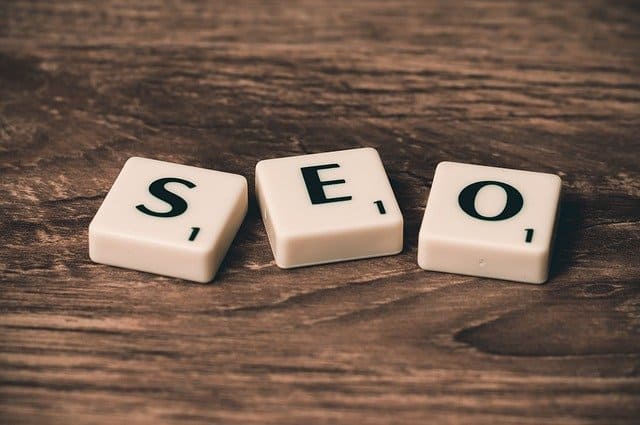Search Engine Optimisation
SEO Consultant
How to Rank on Google
SEO Guide
How to rank a website on Google? Search engine optimisation (SEO) is a set of practices to optimise your website to rank organically in the search engine results. Achieving organic search engine ranking generally results in visitors visiting your website free of charge from search engines including Google.
Ronan has many years’ experience developing and implementing SEO strategies for websites that follow best practices to boost site performance.
What is SEO Search Engine Optimisation?
SEO is search engine optimisation. It is a set of practices for optimising your website and online content to appear in the organic search results for search phrases and keywords on search engines such as Google and Bing.
The objective of search engine optimisation is to optimise your website to perform and appear in the results for relevant searches of certain keywords to organically grow your website traffic and sales. This is done to get your business in front of your target audience. Organic traffic is unpaid traffic, predominantly from Google.
Paid traffic is visitors from Google Ads and other paid sources.
For successful SEO, it is vital that the webpages on your website are fast, user-friendly, have relevant content, are correctly structured, effectively communicate with search engines, have authority with relevant backlinks and offer focused comprehensive content.
Ronan can conduct an SEO audit of your website, online profile and the competition. This will identify technical issues and gaps in your online profile that are damaging your ranking. This data can then be used to develop an SEO strategy to boost organic traffic and grow your business.
This SEO guide covers the basics of optimising your website to grow visitors.
Why is SEO Important?
There a number of search engines including Google, Bing, Yahoo, AOL, Ask and DuckDuckGo. Google is the number one search engine. It processes over 100 billion searches each month. Generally, Google is the most important source of traffic and conversions for many websites. Therefore, hiring an experienced SEO company to implement best practices is vital for success.
How Do Search Engines Work?
Google crawls, indexes and ranks web pages.
The SEO players are the search engine, the searcher and the website. A searcher visits a search engine and asks the search engine a question by inputting a search query. Then, the search engine returns the most relevant results to a query in the Search Engine Results Pages (SERP). What is included within the search results (i.e. websites, local Google Business Profiles, questions people ask, images, AI overviews, videos, rich snippets, search ads, shopping ads, related search queries) will depend upon the query topic, intent of searcher and relevancy of content.
Bots from search engines scan the internet to crawl webpages. They use algorithms to analyse the webpages across the web and index them for relevant searches based on many ranking signals and factors. The Google algorithm determines the ranking and order of webpages for a search query within the Search Engine Results Pages.
SEO Explained – The Basics of Search Engine Optimisation
Keyword Research
A keyword is a single word used to find information when researching. A keyword phrase or long-tail keywords are two or more words used for a search query. Most search queries are for long-tail keywords.
Keyword research is a task that involves identification of popular words and search phrases used by people in search engines. It is a vital task for successful SEO and Google Ads performance. Keyword research dictates what keywords are of relevance and what the topics your webpages should focus on. There are many keyword tools to help with this.
To rank for certain keywords, it is vital that to have relevant content for that keyword search phrase on your webpages. This includes having relevant articles, using the actual search phrases, using related search phrases and publishing focused content on a web page related to the topic. Due to historical success, a common mistake in modern SEO is keyword stuffing. This is the practice of repeating the same keyword on a webpage. It can result in poor ranking and a poor user experience. Latent Semantic Indexing (LSI) keywords are synonyms or phrases closely related to your keyword. It is important to use these within your content.
On-Page SEO
On-page SEO covers all aspects of the quality on your own website and the user experience. It is the practice of optimising web pages to rank organically to gain traffic. It includes the website design, web page content, HTML source code and technical SEO.
A secure website hosted with a good hosting provider that is accessible to search bots is required. Create a Robots.txt file to communicate what elements of your website should be crawled. Usability factors including website coding, design, site structure, site navigation, internal links, page size, image size, load time and speed impact ranking.
Google has stressed the importance of core web vitals factors for SEO and organic ranking. Core web vitals are webpage speed and user experience measurements. Google have provided specific target measurements for these, which websites should aim to achieve. The elements of core web vitals are largest contentful paint (LCP), first input delay (FID), and cumulative layout shift (CLS).
More people search using mobile devices than desktops. Therefore, mobile usability is a key ranking factor. Mobile responsive design is essential. This means a website adapts to the device of the user.
Important on-page SEO ranking signals including webpage structure, navigation, content, internal links, meta tags, title, page descriptions, alt tags, header tags, schema and URL structure must all follow SEO best practices.
Content is one of the most important SEO ranking factors. Comprehensive focused relevant content generally ranks better. The quality of content along with its type, structure, layout, readability and keyword relevance are vital ranking signals. There are many types of digital content including text, images, video, infographics, podcasts and eBooks. To rank, all content should be tagged correctly together with being optimised in the correct format and size to load fast. Google E-E-A-T is an important SEO ranking element. Content should demonstrate experience, expertise, authoritativeness, and trustworthiness on the topic.
It is important to keep Google updated regarding your website content. This is achieved by creating an XML Sitemap and submitting it to the Google Search Console.
Structured data permits Google to understand what your web page content is about to provide more informative results for searchers. By adding Schema Mark-up code to your website, it provides data in a structured approach to search engines. It is a ranking signal that can help improve your website performance in SERPs and rich snippets.
Off-Page SEO
Google uses off-page SEO signals to learn what others think about your website and judge your online reputation. Off-page SEO covers external factors that take place off your website. These external factors affect rank of webpages in SERPs by impacting your website trustworthiness, authority and relevance. It is impacted by activities that both you and other people do away from your website. Off-page SEO factors include your external backlink profile, social signals and domain authority.
Domain Authority
A website with authority is a site that is trusted. Domain Authority is a search engine ranking score used by many as a guide to judge the significance of websites. Web page quality, expertise, authoritativeness and trustworthiness are important elements. Establishing authority within a field should be a key goal of any website.
Citations
A citation is an off-page SEO signal. It is a reference to the source of information used on a webpage. If external websites cite your website as a source of information, this can be a signal that your website is creating quality content. An example of a citation could be a website mentioning your brand or website URL without including a hyperlink. This could be a newspaper or a blog writing about your brand, technology, products or some research findings that you share.
Social Signals
Love it or hate it, social media is important. Over half of the world’s population use social media. There are many popular social networks including Facebook, Twitter, Instagram, WhatsApp, TikTok, WeChat, Tumblr, Snapchat, Pinterest, Reddit and Foursquare.
Social signals are off-page SEO ranking factors. These include a website’s social media presence, posts, number of followers, engagement, shares, likes, comments, links and more. Effectively, social media is extremely popular. This is why search engines use social signals as an indicator to gauge the popularity of a website.
Link Building
Backlinks are a very important SEO ranking factor. A backlink is a link from one website to another website. Outbound links are links from your website to external websites. Inbound links are links from external websites to your own website. Backlinks to your website from relevant reputable sources can boost your performance.
The easiest way to think of links is in terms of popularity and votes of confidence. When Google sees many relevant websites linking to your web pages, it can view your web pages as popular and relevant due to others sharing and linking to your content. They use this as key signal in deciding what web pages to rank and in what position within the search results.
All links are not equal. Link authority is an indicator of the ranking power of a backlink from a website. Backlinks from authority websites that are relevant to your own website are the best type of link.
Links can be follow links or no follow links. In this instance, follow means links that count towards boosting ranking. Traditionally, no follow links did not boost page rank. Most links are no follow. However, they are still an important SEO signal.
Building a strong inbound backlink profile is a key element of SEO success. A good backlink profile is not about volume. It is about quality, authority and relevance.
Many webmasters use black hat SEO techniques such as purchasing links. This is against Google guidelines, and can result in a website being penalised and/or even being excluded from Google. There are many link building strategies available including natural links from others, self-created links in directories and review sites as well as links from guest blogging, press release distribution and other outreach techniques.
Google SEO Agency
Strong search engine optimisation performance involves developing a digital strategy that follows best practices for SEO. This covers both on-page and off-page search engine optimisation. It combines with all other digital marketing and offline elements of your business to improve performance and provide a route to success.
Ronan can build an optimised website or e-commerce platform for your business and manage your SEO strategy in line with the highest standards to create a domain with ranking authority.


